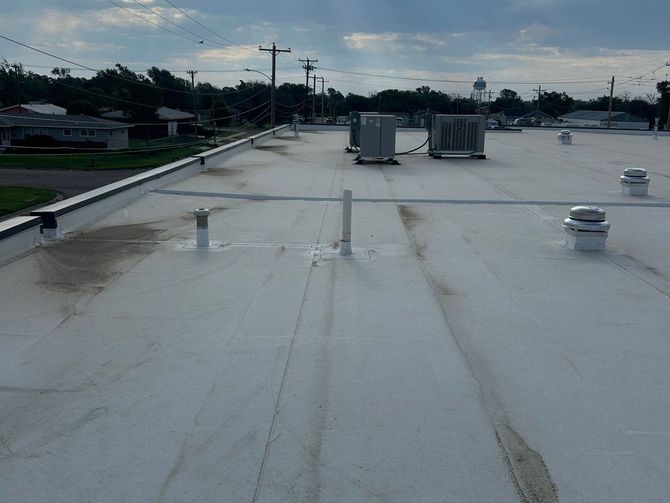When it comes to your business property, the roof is one of the most important aspects to consider. Not only does it protect your building from the elements, but a strong, durable roof can save you significant repair costs and even improve energy efficiency. In this guide, we’ll explore the best materials for commercial roofing and why investing in quality roofing is essential for long-term success.
Assessing Your Commercial Roofing Requirements
When it comes to commercial roofing, different factors influence your decision-making process. Climate, the structure of your building, and your business operations all impact the type of roofing you should choose. Understanding these requirements ensures you make the right choice for your business, whether it's a warehouse, office building, or retail store.
The Best Materials for Commercial Roofs
Several roofing materials are commonly used in commercial buildings. The best choice depends on your specific needs and budget. Each material offers distinct advantages, ensuring the right option for your business.
First Choice: Metal Roofing
Metal roofing is highly favored for commercial properties because of its long-lasting durability and energy-saving features. Available in materials such as steel or aluminum, metal roofs can handle extreme weather and provide excellent leak protection. Plus, their reflective surface can reduce cooling costs during the hotter months.
2. Flat Roofs
Flat roofing systems are popular for commercial buildings due to their affordability and simple installation. These roofs are particularly suitable for buildings with contemporary architecture. Materials like TPO, EPDM, and PVC are commonly used, offering excellent waterproofing and insulation. Proper maintenance and drainage are essential for their longevity.
Shingle Roofs for Commercial Properties
Shingle roofing is not as common for large commercial buildings, but it can be a good choice for smaller properties or those that need a traditional look. Asphalt shingles are affordable and come in various colors and styles, though they don't offer the same longevity as metal or flat roofs.
Roof Installation: Best Practices and Maintenance Tips
After selecting the right roofing material, the next step is installation. It’s essential to hire an experienced and licensed roofing contractor to ensure proper installation. This will help prevent leaks and ensure your roof lasts as long as possible.
Routine maintenance is crucial for extending the lifespan of your commercial roof. It’s recommended to inspect the roof twice a year, especially following severe weather. Look for issues such as missing shingles, cracks, or standing water. Cleaning gutters and removing debris will help prevent damage.

Why Investing in Quality Roofing Protects Your Business
Your roof is a long-term investment. A quality roofing system provides protection against leaks, which could cause expensive damage to your building and inventory. It also enhances energy efficiency, making your property more environmentally friendly and reducing operating costs. Ultimately, a well-maintained roof can improve your building's value and ensure that you’re not facing costly repairs down the road.
Conclusion: Choosing the Right Commercial Roofer
Finding the right roofing contractor is key to the success of your project. Seek out a licensed, experienced roofer who understands the unique requirements of commercial properties and can provide expert advice. The right contractor will also assist with installation and maintenance, ensuring the longevity of your roof.
Looking to replace your commercial roof? Contact us for a free consultation, and we’ll help you choose the perfect roofing solution for your needs!
#CommercialRoofing #RoofingMaterials #BusinessProtection #MetalRoofing #FlatRoofing #RoofInstallation #EnergyEfficiency #RoofMaintenance